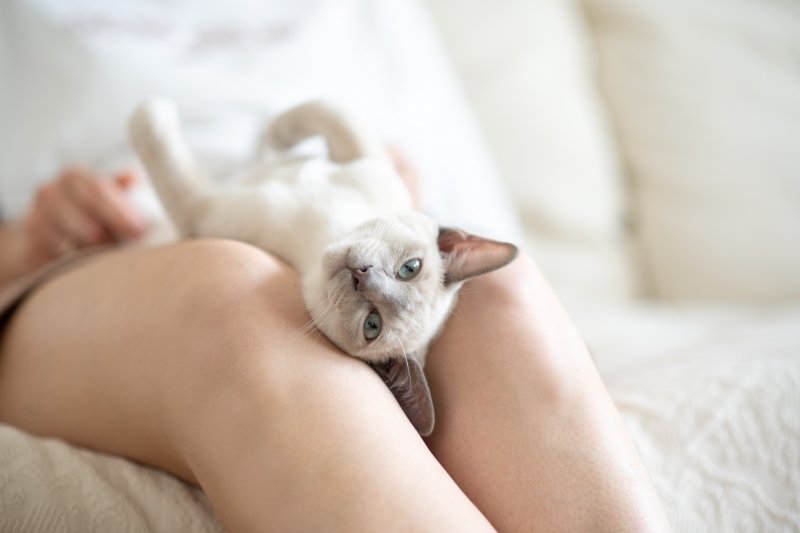
Approximately 65% of American households own a pet, with the favorites of course being cats and dogs. If you look at the science, having a pet offers a litany of benefits, from companionship to security to reduced stress and more. We love our furry friends so much that we even share bedtime with them. While this might sound warm and cuddly at first glance, is it smart to sleep with a pet if you have an issue like sleep apnea? It turns out that the issue isn’t so cut and dry, but knowing more about it can help you make the best decision for yourself and your pet.
The Good News
The question of how sleeping with a pet affects someone’s rest has been looked at before in multiple studies, and overall, the findings are very positive. Most pet owners report feeling more relaxed at bedtime and even enjoying a free “bed warmer” as well as a sense of protection when talking about larger dogs. Reports of disruptive behavior are relatively low (moving a lot or making noise), and owners usually say that the animals like it, too.
The big issue with most of these studies is that they weren’t extremely rigorous. They were completed over just a few weeks (a short timeframe for health research), and quality of sleep was measured by having the owner wear an accelerometer to bed, which tracks how much they moved throughout the night. This isn’t the most accurate or reliable method, which is why it’s not used for sleep tests to diagnose sleep apnea for example. And, reports were largely based on firsthand accounts from pet owners, who as you can imagine, would be slightly biased towards saying they like having their little friend in the bedroom.
The Bad News
Needless to say, dogs and cats don’t sleep the same way that people do. Cats, for example, are infamous for being crepuscular, meaning they are most active during the dawn and dusk hours when the majority of people are asleep. This means while someone is trying to catch Z’s, they are up and trying to hunt for food (which for domestic cats usually entails waking up their owner).
Another factor that is particularly concerning for people with sleep apnea concerns pet-related allergies. Between hair and dander, pets introduce many particulates to the air that can irritate someone’s breathing passages, leading to inflammation. For a person with sleep apnea, this can exacerbate the stoppages in breathing that are already occurring during the night. Couple this with an overactive or needy pet that needs cuddles at 3 AM, and this can lead to a big issue for someone’s sleep quality.
What Can You Do?
Thankfully, for those with sleep apnea, the first course of action should NOT be to kick their pet out of the bedroom. Rather, they should reach out for professional help to get their condition under control as quickly as possible. The easiest way in most cases is to have a screening performed by a sleep dentist, who can ultimately provide a patient with a small custom mouthguard that will allow them to breathe throughout the night uninterrupted and receive the rest their body and mind need.
Once someone is treating their sleep apnea, they need to be honest with themselves—is their pet causing them to lose sleep in any way? If the answer is yes, then it’s time to switch up the bed routine.
This might seem sad at first, but getting quality rest is a pillar of good health for both people and animals, and you’re not doing yourself or your furry friend any favors by being exhausted all the time. Having your pet sleep somewhere else might take some adjustment, but it ultimately benefits you AND them because you’ll have more energy to play with them for years to come!
About the Author
Dr. Jeff Rodgers is an experienced sleep dentist who has served the Dunwoody/Atlanta communities for more than 20 years. A graduate of the University of Alabama School of Dentistry, he has completed several hours of advanced education solely focused on sleep dentistry. He is a Diplomate of both the American Board of Dental Sleep Medicine and the American Sleep and Breathing Academy. If you believe you might have sleep apnea, you can take our quick sleep assessment or schedule a screening with Dr. Rogers by clicking here or calling (770)394-4310.
